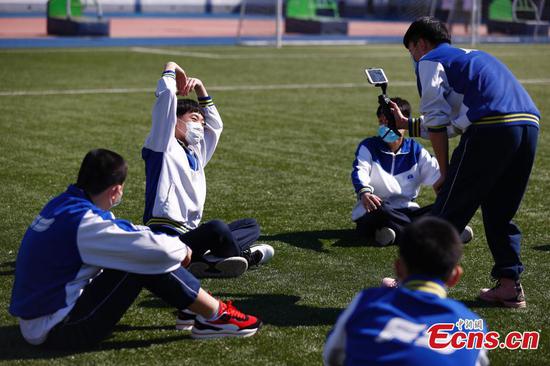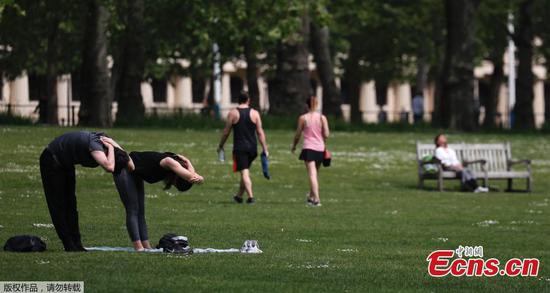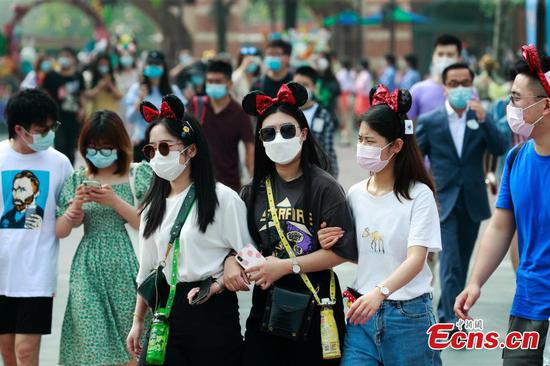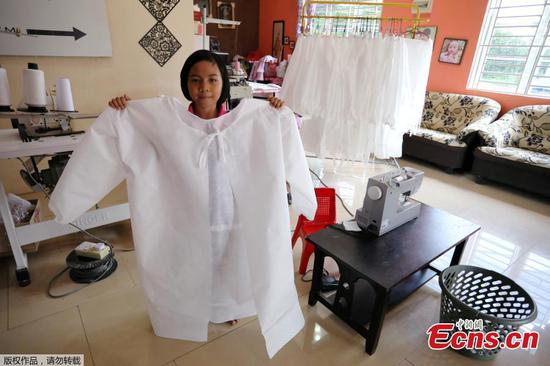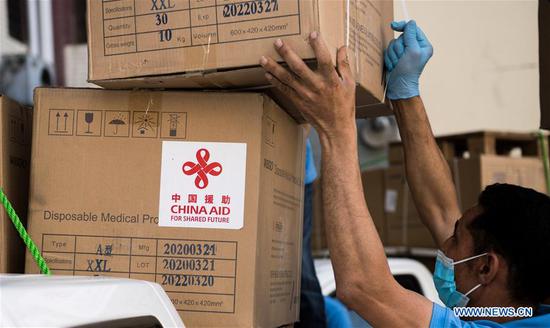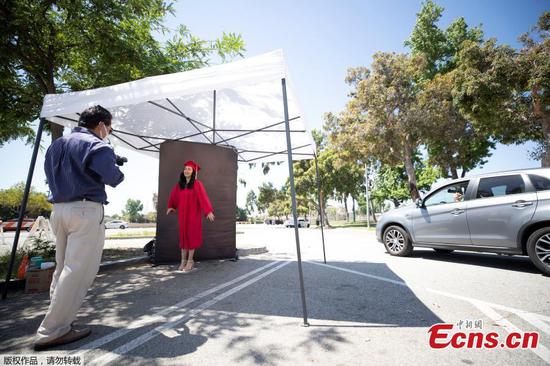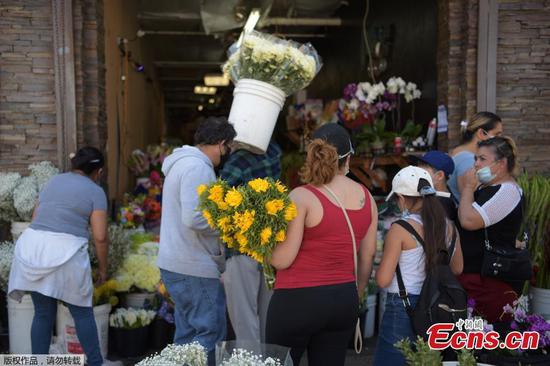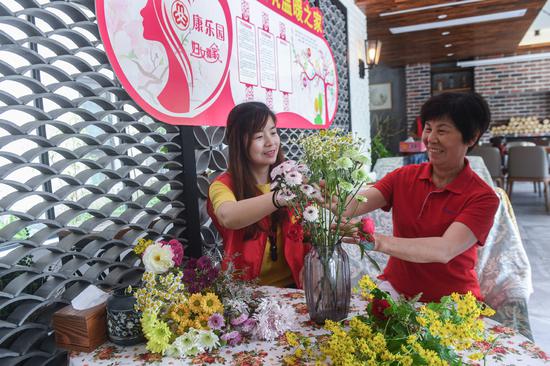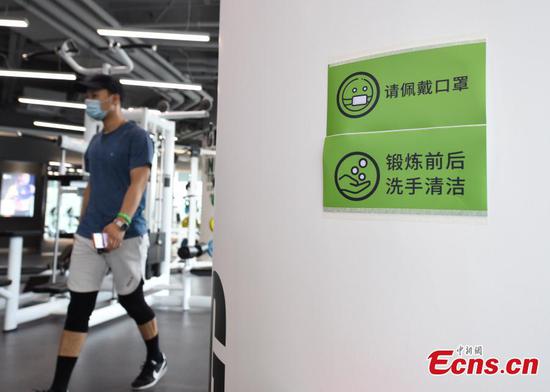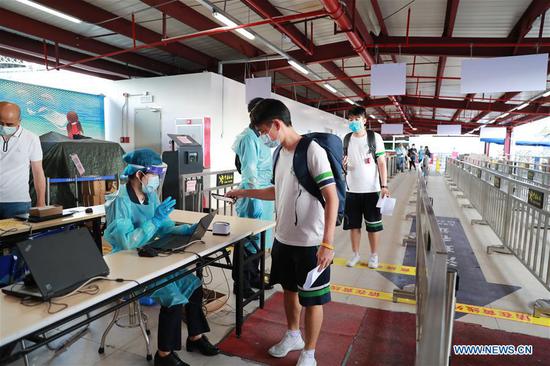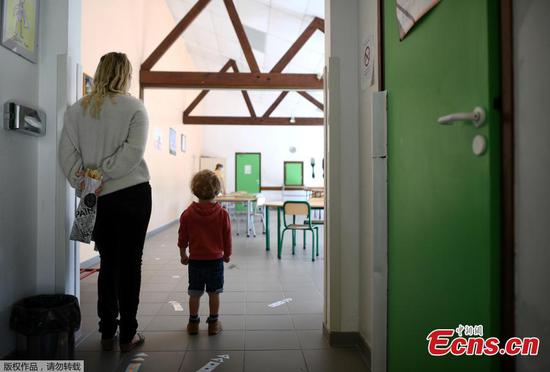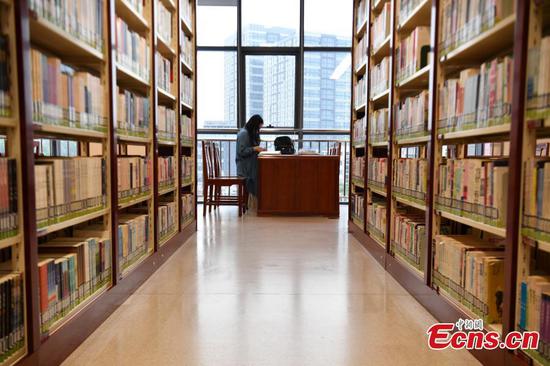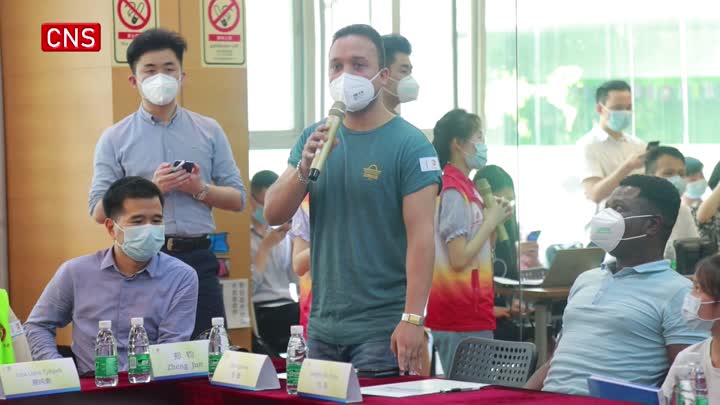Some Chinese studying and working overseas are moving back for greater security.
After chatting with her parents in China about the novel coronavirus, Lin Yating feels like she is living in a crack between two worlds.
The Chinese national, who lives in Melbourne, Australia, is experiencing culture shock related to the anti-pandemic measures.
While her parents are pestering her to stock up on face masks and wear them whenever she goes outside, she is concerned that her local friends may look unkindly on her for taking urgently needed protective equipment from medical professionals.
Some Chinese who work or study overseas have experienced cultural shocks and even unfriendly treatment as the pandemic continues to wreak havoc and force lockdowns in many countries in efforts to contain the spread of the virus.

A woman wearing a protective shield and a mask walks in a residential community in Flushing, New York, on April 6, 2020. (Photo/China News Service)
Masks
Lin and her boyfriend are information technology consultants. They have been working from home since the middle of March, only leaving their apartment once a week to buy necessities.
However, the 26-year-old has noticed that her Australian neighbors rarely wear face masks when they go out.
That is at odds with her parents' description of events in China, where almost everyone wears a mask, and no one can leave or enter a community without wearing one or having their temperature taken.
"Some locals think masks do not protect healthy people from the virus because the authorities have stated they should only be worn by those who are sick-to prevent others from getting infected-and medical and care workers," Lin said.
She also found it difficult to buy masks after bushfires wreaked havoc in Australia.
She planned to buy them from a company in China, but the order was canceled after tariffs were increased and the number of international flights fell as a result of the pandemic.
"I don't even know when the fires were extinguished and the coronavirus attracted everyone's attention, but the masks were sold out before we knew the virus was coming. Actually, when people don't have masks, they are more likely to believe that they are useless," Lin said.
"We guessed that local governments didn't urge people to wear masks at the beginning because they were worried that supply shortages would provoke panic. We Chinese have a strong awareness of wearing masks in daily life, such as against smog."
Tong Xumin, a designer for a Chinese company in London, United Kingdom, used one of her video logs to try to understand why her non-Chinese friends didn't wear masks.
She discovered that some thought face masks offered no protection, while others were aware that the virus can enter the body via contact, so they thought they only had to wash their hands frequently to avoid infection. Others simply didn't have masks to wear.
Tong and her roommate, a United States national, experienced a number of conflicts after Tong returned from China on Feb 25, despite having shared an apartment for about 18 months and generally enjoying a good relationship.
Tong spent a two-week self-quarantine period at home. However, her roommate, an architect with a multinational company, was unhappy because her boss had ordered her to work from home for two weeks as a result of Tong's return.
"She didn't understand why she and I had to be quarantined. Also, she thought I was overreacting by wearing a mask and gloves and disinfecting everything, even though the situation was serious," Tong said.
"I could understand her feelings at the time because she had no idea about the virus. Now, the pandemic has progressed and she understands my actions."
On March 23, the UK government announced a lockdown, albeit far less strict than the one imposed in Wuhan, capital city of Hubei province, one of the places hardest hit by the virus in China. Even so, Tong found many people were still venturing onto the streets.
"Such behavior is difficult to understand coming from China, where people would ask why you can't just exercise at home if your life is in danger," she said.
Tong added that she believes everyone has the right to use any preventive measures they feel are necessary as long as they do not interfere with other people.










